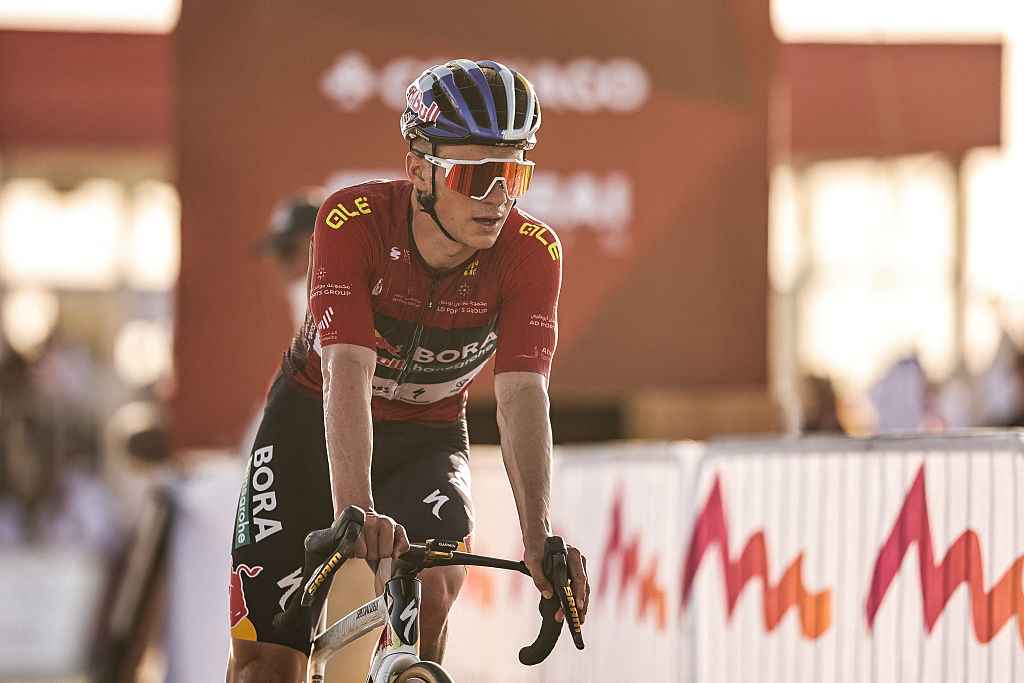Third time the charm? George Bennett returns to the Giro d'Italia
New Zealander on the right path despite being hit by car
The latest race content, interviews, features, reviews and expert buying guides, direct to your inbox!
You are now subscribed
Your newsletter sign-up was successful
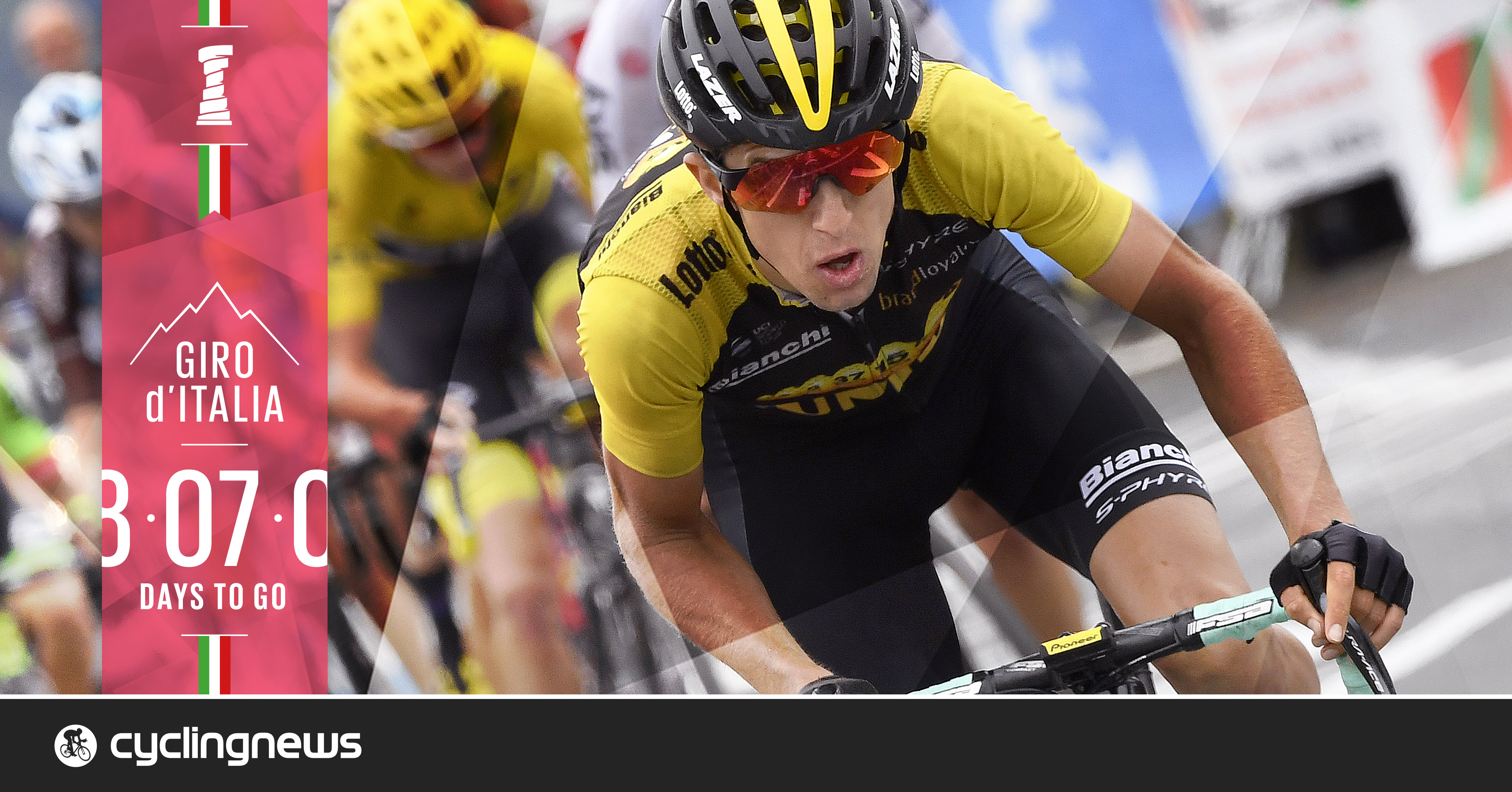
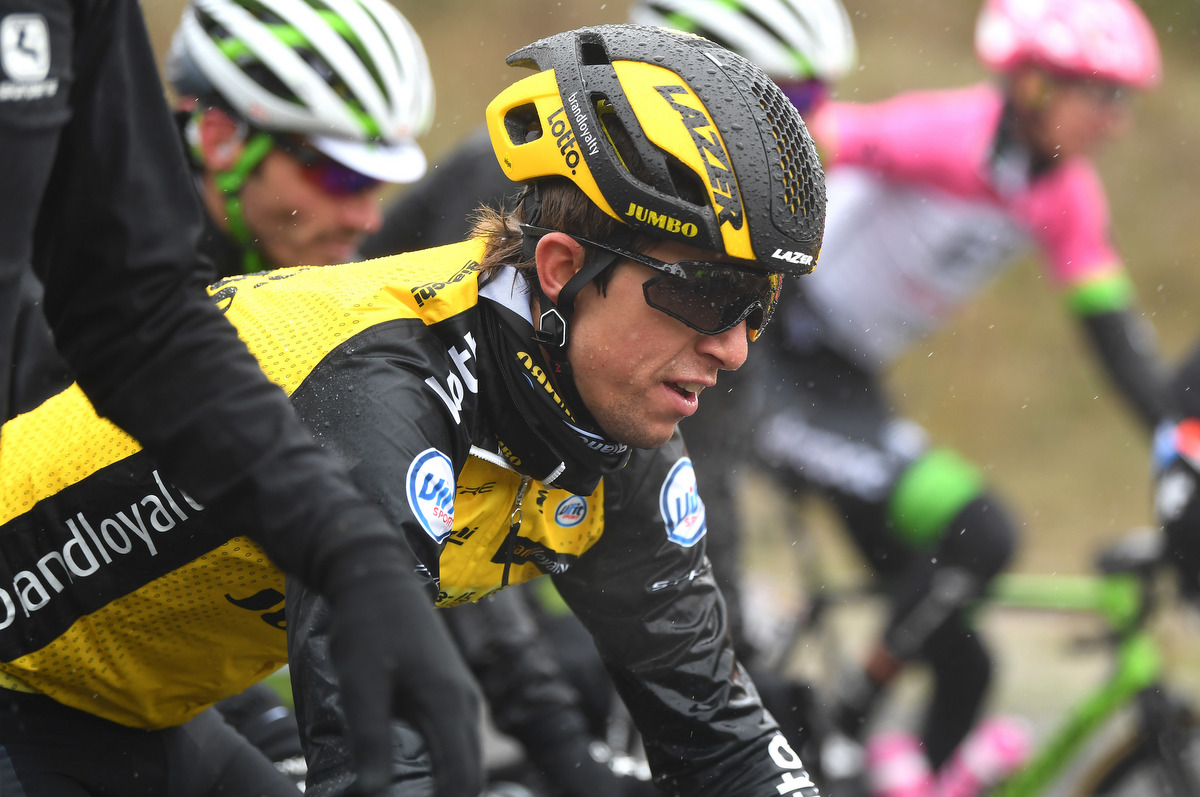
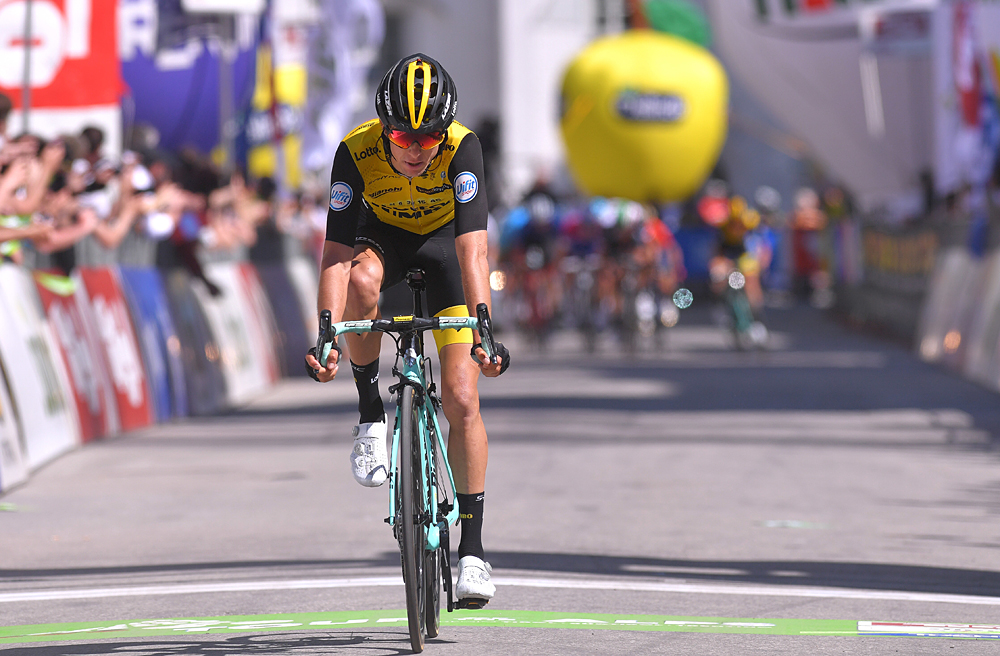
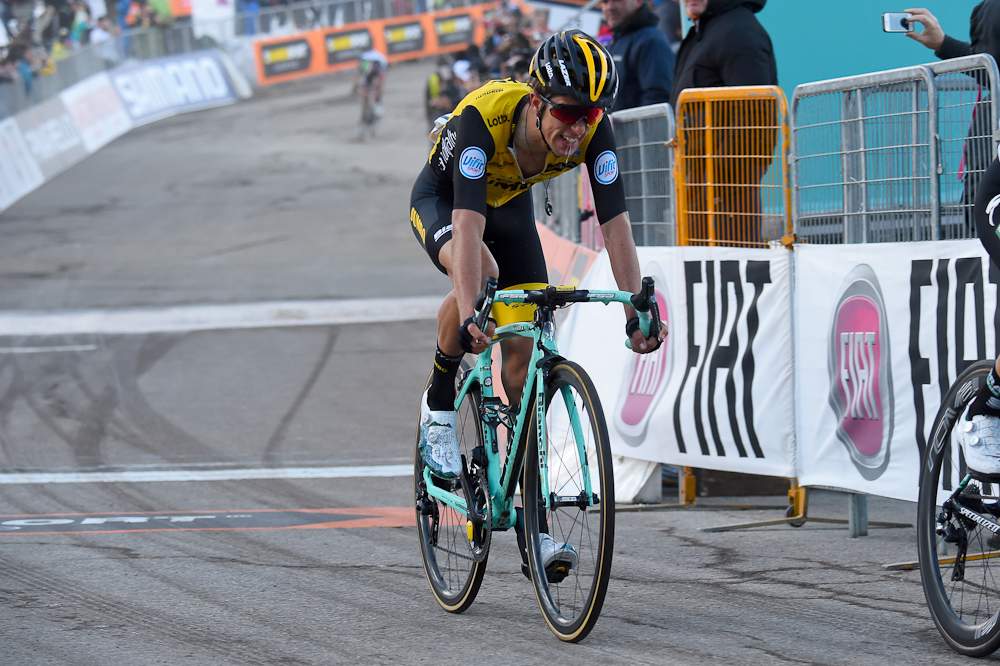
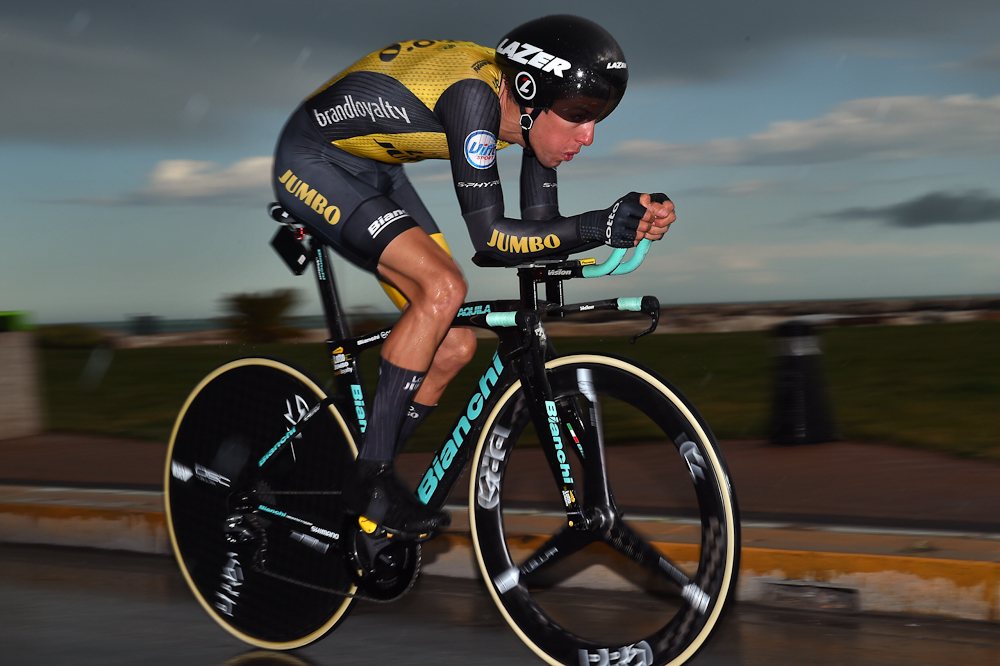
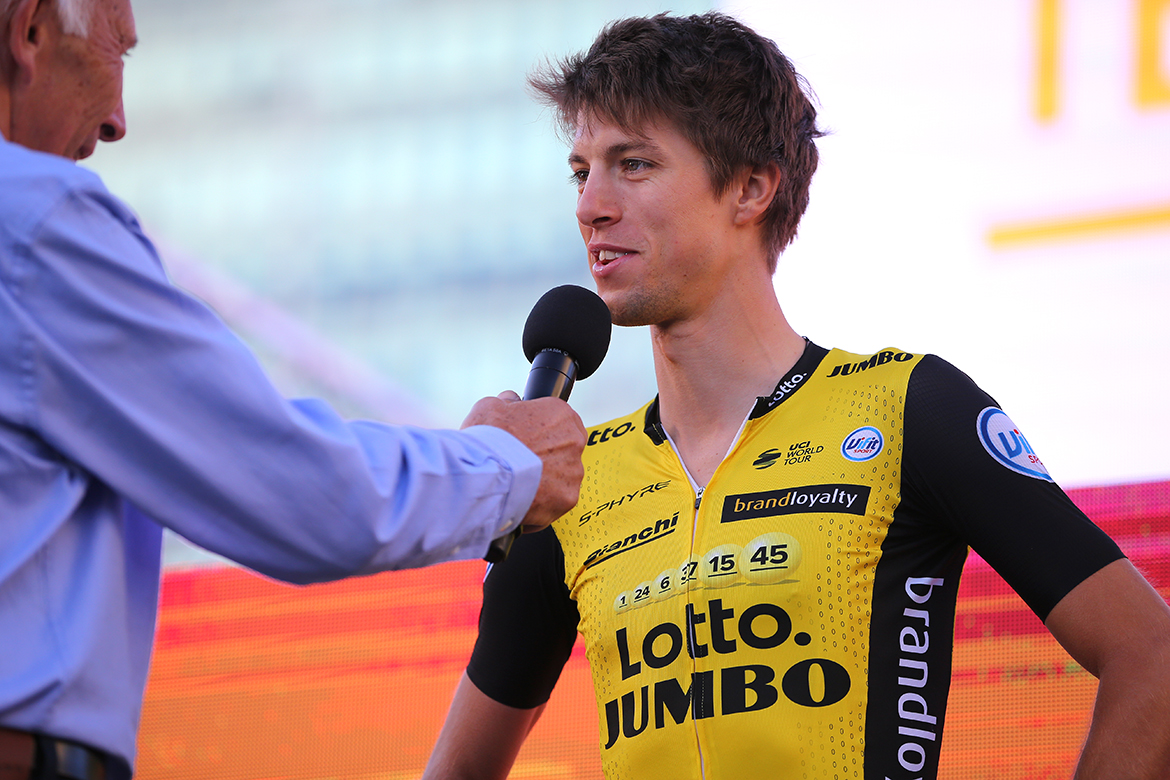
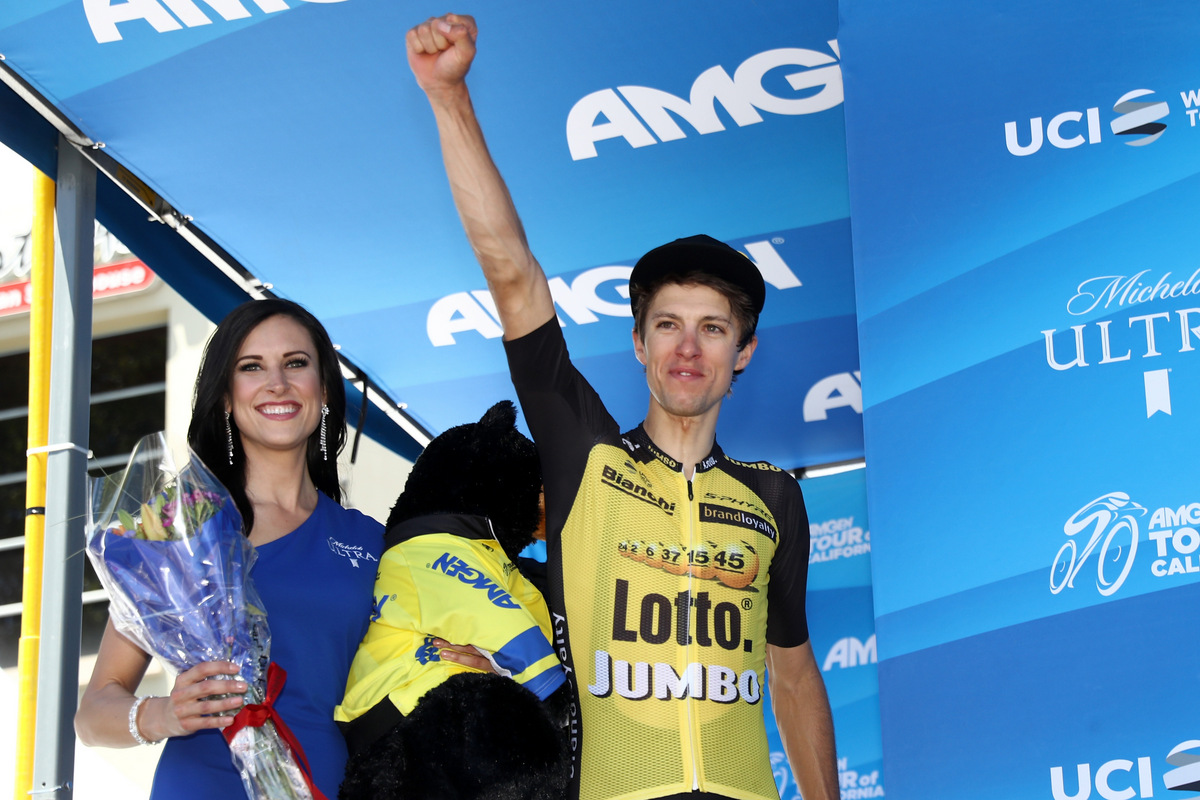
They say the third time is the charm, and George Bennett will hope that's the case when it comes to the Giro d’Italia in a week’s time. Although the Kiwi says he loves competing in Italy, the corsa rosa has not been a kind mistress to him.
Bennett will line up in Jerusalem next Friday as LottoNL-Jumbo’s general classification leader, and he is counted among the favourites, particularly after a strong ride at last week’s Tour of the Alps. It is a far cry from his first appearance at the race in 2013, his debut Grand Tour, where he finished a lowly 122nd overall.
"It was the worst three weeks of my life," Bennett tells Cyclingnews. "I managed to over-train myself at the Sierra Nevada. I started the camp being a hero and I finished it being the worst rider. I went to Romandie and I was last every day, and then I went to the Giro and I was shit. I just had the worst time. You learn a lot about what not to do."
The record books will show that Bennett has only ridden the Giro d’Italia once before, but he was on the start list of another. He was set to line out at the 2015 edition but was pulled from the team on the eve of the race when a regular test by the Mouvement Pour un Cyclisme Crédible (MPCC) showed that he had low cortisol levels.
Low levels of cortisol can be indicative of cortisone use as well as other health uses, and MPCC rules dictate that riders must be removed from racing if they register levels below the norm. Bennett worried that his reputation could be tarnished and underwent a series of tests to prove he hadn’t done anything untoward, with LottoNL-Jumbo soon leaving the MPCC.
"At the time I was upset about the Giro but I was more concerned about my reputation," Bennett says. "We worked very closely with this guy who used to run a WADA lab and was one of the leading anti-doping experts in the world. We went to somewhere in Maastricht and did the testing, and we measured my cortisol. You piss in a cup for three days. They measure everything and they relate it to everything and then they say you have not taken cortisone.
"I was really upset at the time, but once we’d done the testing I was a lot happier because I had this. If anyone tried to say that I’d done something then I could say 'no, fuck you, look at this'."
The latest race content, interviews, features, reviews and expert buying guides, direct to your inbox!
Chris Froome case
Ultimately, Bennett did not have a say as to whether or not he could race the Giro d’Italia. The team was part of the MPCC and they had to follow their rules.
One of Bennett’s chief rivals at this year’s Giro, Chris Froome, will arrive under slightly different circumstances. The Team Sky rider is currently under investigation after an anti-doping test during last year’s Vuelta a Espana showed elevated levels of the asthma drug salbutamol. Given it's a specified substance, Froome has not been provisionally suspended pending the verdict, and he has decided against sitting out of racing in favour of riding the Giro sub judice.
Put in the same situation, Bennett says he would probably take time out of racing, but he doesn’t begrudge Froome for continuing to compete.
"It’s just such a shit situation for the sport," he says. "I don’t know why, but sometimes I read comment sections and in any story about Froome you’ll see the comments and they’ll say ‘why is he still here? Fuck this guy.’
“If it was me, with all the stuff that is going on and all the attention around it, I would probably bugger off to New Zealand. That’s my take on it. From his point of view, he’s entitled to race.”
Whatever the outcome, Bennett believes that the rules need looking at.
"I hope that we can learn from this or they make some changes," he says. "In the end, it’s not Chris’ fault that the rules are so shit. If it was me, I don’t know if I would want to… It’s not me, we’re completely different people, in different universes."
Breaking through
In recent seasons, Bennett has enjoyed a breakthrough at Grand Tours. He finished 37th at the 2015 Vuelta a España and went on to enjoy his best three-week result to date with 10th at the 2016 edition of the Spanish race.
Last year was an opportunity to back that up and, after overall victory at the Tour of California, he went into his second ever Tour de France with big confidence. With two weeks of racing under the belt, Bennett was sat just outside the top 10 when illness forced him to leave the race on stage 16.
He got the bit between his teeth and was determined to bounce back for the Vuelta, but he hadn’t properly recovered from his sickness. He was more than two hours down when the team pulled him out of the race after stage 11, and he would miss the World Championships too.
"There were a few weeks that I just couldn’t get out of bed. I was just completely fatigued," he says. "I’d had mono the year before but it wasn’t related. There was something that absolutely cooked me. I was a little bit worried because I know the stories of [Beñat] Intxausti and things like that. But, I came good. I’ve had no trouble since."
Building to the Giro d'Italia
Before he could get his 2018 campaign underway, Bennett underwent some serious surgery in mid-December to remove a ligament in his abdomen that had been compressing an artery. Despite this, he got his season up and running at the start of January with fourth place in the road race at the New Zealand national championships. He enjoyed an 11th place at the Tour Down Under before the Cadel Evans Road Race completed his Southern Hemisphere stint.
It has been all go for Bennett since then, with just a week spent between his European bases of Andorra and Girona as he packs in the racing and training miles. Bennett made his European debut at Strade Bianche and went on to finish ninth overall at Tirreno-Adriatico followed by sixth at the Volta a Catalunya.
Everything appeared to be going swimmingly until he suddenly found himself catapulted into the air as he reconnoitred stage 16 of the Giro d’Italia, ahead of an appearance at the Tour of the Alps. Bennett had been on his time trial bike when a car failed to spot him and his teammates and turned into their path. Bennett hit the car and was thrown over the top, taking the roof-rack with his knees before landing on the other side. In the grand scheme of things, Bennett was fortunate and was left with some bruises and swelling. He even went on to finish fifth overall at the Tour of the Alps, taking second on the final two stages.
"I was a little bit worried about my left knee," he says. "When I crashed, I was lying there going through the motions. I tried to get up and walk to the car but then I couldn’t walk and I was thinking ‘oh shit’ this is bad, but I think I’ve just got a bad bruise on the bone but there’s no ligaments, no tendons or anything that long-term would be a problem. There’s a bit of a weird thing that’s going on with my shoulder but I’m not really sure what that is. It doesn’t really hurt that much but I can’t really move it. We’re not worried."
Prior to the incident, Bennett had got a good look at the key 34.5km time trial between Trento and Rovereto. "I actually really liked the time trial, it was really fun. It’s probably not best suited to me but it’s crazy fast, beautiful roads, a slight tailwind and it’s going to be a 60km/h average,"explains Bennett. “I don’t know what the last five kilometres are like, I was in the ambulance, but barring the last five kilometres being really hard it is a nice TT."
"It is a different route to normal because you have a lot of stages that are flat with steep uphill finishes. It’s almost more like a Vuelta than a Giro. For me, I prefer these really hard mountain stages when everyone is on their knees," says Bennett.
"I think it really suits a guy like Lopez or Chaves, these guys with amazing VO2s. I think it will be really interesting if guys like Chris [Froome] and Tom [Dumoulin], who are a bit bigger and good time triallists, can limit their losses there.
"For me, there are still a couple of big mountain stages where guys can really lose time. The last three days will be really hard. I’m hopeful that that’s where I come back into the game."
Born in Ireland to a cycling family and later moved to the Isle of Man, so there was no surprise when I got into the sport. Studied sports journalism at university before going on to do a Masters in sports broadcast. After university I spent three months interning at Eurosport, where I covered the Tour de France. In 2012 I started at Procycling Magazine, before becoming the deputy editor of Procycling Week. I then joined Cyclingnews, in December 2013.
